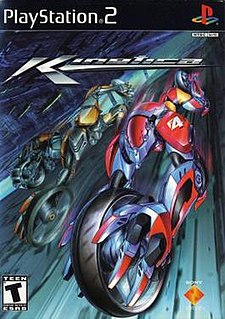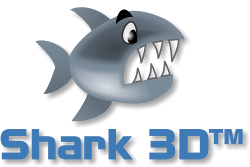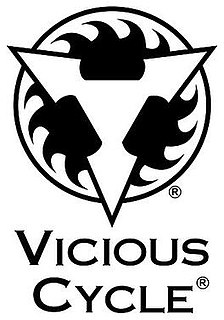
id Software LLC is an American video game developer based in Richardson, Texas. The company was founded on February 1, 1991, by four members of the computer company Softdisk, programmers John Carmack and John Romero, game designer Tom Hall, and artist Adrian Carmack. Business manager Jay Wilbur was also involved. id Software made important technological developments in video game technologies for the PC, including work done for the Wolfenstein, Doom, and Quake franchises. id's work was particularly important in 3D computer graphics technology and in game engines that are used throughout the video game industry. The company was involved in the creation of the first-person shooter (FPS) genre. Wolfenstein 3D is often considered to be the first true FPS, Doom is a game that popularized the genre and PC gaming in general, and Quake was id's first true 3D FPS.

Raven Software is an American video game developer based in Wisconsin and founded in 1990. In 1997, Raven made an exclusive publishing deal with Activision and was subsequently acquired by them. After the acquisition, many of the studio's original developers, largely responsible for creating the Heretic and Hexen: Beyond Heretic games, left to form Human Head Studios.

Wolfenstein 3D is a first-person shooter video game developed by id Software and published by Apogee Software and FormGen. Originally released on May 5, 1992 for DOS, it was inspired by the 1981 Muse Software video game Castle Wolfenstein, and is the third installment in the Wolfenstein series. In Wolfenstein 3D, the player assumes the role of Allied spy William "B.J." Blazkowicz during World War II as he escapes from the Nazi German prison Castle Wolfenstein and carries out a series of crucial missions against the Nazis. The player traverses each of the game's levels to find an elevator to the next level or kill a final boss, fighting Nazi soldiers, dogs, and other enemies with knives and a variety of guns.
Sierra Entertainment, Inc. was an American video game developer and publisher. Founded in 1979 as On-Line Systems, by Ken and Roberta Williams, Sierra is known primarily for its graphic adventure game series such as King's Quest, Space Quest, Police Quest, Gabriel Knight, Leisure Suit Larry, and Quest for Glory.

A game engine, also known as a game architecture, game framework or gameframe, is a software-development environment designed for people to build video games. Developers use game engines to construct games for consoles, mobile devices, and personal computers. The core functionality typically provided by a game engine includes a rendering engine ("renderer") for 2D or 3D graphics, a physics engine or collision detection, sound, scripting, animation, artificial intelligence, networking, streaming, memory management, threading, localization support, scene graph, and may include video support for cinematics. Implementers often economize on the process of game development by reusing/adapting, in large part, the same game engine to produce different games or to aid in porting games to multiple platforms.

Interplay Entertainment Corp. is an American video game developer and publisher based in Los Angeles. The company was founded in 1983 as Interplay Productions by developers Brian Fargo, Jay Patel, Troy Worrell, and Rebecca Heineman, as well as investor Chris Wells. As a developer, Interplay is best known as the creator of the Fallout series and as a publisher for the Baldur's Gate and Descent series.
Modding is a slang expression that is derived from the verb "modify". Modding refers to the act of modifying hardware, software, or virtually anything else, to perform a function not originally conceived or intended by the designer, or achieve a bespoke specification. The term modding is used within the computer game community, particularly in regard to creating new or altered content and sharing that via the web. It may be applied to the overclocking of computers in order to increase the frequency at which the CPU operates. Case modding is a popular activity amongst many computer enthusiasts which involves the customization of a computer case or the installation of water cooling technology. In connection with automobiles, modding can mean engine tuning, remapping of a vehicle's engine control unit or customization of the bodywork. Some people modify small electronic handheld toys by circuit bending, changing the circuits and adding a knob or switch that will change the produced pitch up or down.

Havok is a middleware software suite developed by the Irish company Havok. Havok provides a physics engine component and related functions to video games.
Dynamix, Inc. was an American developer of video games from 1984 to 2001, best known for the flight simulator Red Baron, the puzzle game The Incredible Machine, the Front Page Sports series, Betrayal at Krondor, and the online multiplayer game Tribes.

Surreal Software was a video game developer based in Kirkland, Washington, United States, and a subsidiary of Warner Bros. Interactive Entertainment, known for The Lord of the Rings: The Fellowship of the Ring, The Suffering and Drakan series. Surreal Software employed over 130 designers, artists, and programmers. Surreal was acquired by Warner Bros. Games during the bankruptcy of Midway Games in July 2009. After a significant layoff in January 2011, the remaining employees were integrated into WBG's Kirkland offices, along with developers Monolith and Snowblind.
Criterion Games is a British video game developer based in Guildford. Founded in January 1996 as a division of Criterion Software, it was owned by Canon Inc. until Criterion Software was sold to Electronic Arts in October 2004. Many of Criterion Games' titles were built on the RenderWare engine, which Criterion Software developed. Notable games developed by Criterion Games include racing video games in the Burnout and Need for Speed series. As of April 2017, Criterion Games employ approximately 90 people.

Kinetica is a futuristic racing video game developed by SCE Santa Monica Studio and published by Sony Computer Entertainment exclusively for the PlayStation 2. It was released on October 14, 2001 in North America. It was the first game to use the Kinetica game engine which would later be used for the video games SOCOM U.S. Navy SEALs, God of War and God of War II. The game incorporates the use of SoundMAX audio technology by Analog Devices. An art book titled The Art of Kinetica was included with the game itself, containing artwork of the game's characters. In 2016, the game was re-released on PlayStation 4.

EA Vancouver is a video game developer located in Burnaby, British Columbia. The development studio opened as Distinctive Software in January 1983, and is also Electronic Arts's largest and oldest studio. EA Canada employs approximately 1,300 people, and houses the world's largest video game test operation.

Santa Monica Studio, LLC is an American video game developer based in Los Angeles. A first-party studio for Sony Interactive Entertainment, it is best known for developing the God of War series.

Shark 3D is a 3D software program and engine developed by Spinor for creating and running interactive virtual 3D worlds. It is used for video games, films, animated series, broadcasting graphics, and 3D industry applications.

Vicious Cycle Software was an American video game development company based in Morrisville, North Carolina.

John Riccitiello is an American business executive who is chief executive officer (CEO) of Unity Technologies. Previously, he served as CEO, chief operating officer and president of Electronic Arts, and co-founded private equity firm Elevation Partners in 2004. Riccitiello has served on several company boards, including those of the Entertainment Software Association, the Entertainment Software Rating Board, the Haas School of Business and the USC School of Cinematic Arts.
Engine Software is a Dutch video game developer, located in Doetinchem, Netherlands, which specializes in handheld video games and digital platforms. They have also developed middleware for the Game Boy Advance and Nintendo DS.
CFL Football '99 is a gridiron football video game developed by Victoria, British Columbia-based entrepreneur David Winter. It is an officially licensed product of the Canadian Football League and the Canadian Football League Players Association. The title is best known for being the only video game based on the CFL to date.
Kinetica DB, Inc. is a company that develops a distributed, memory-first database management system using graphics processing units (GPUs) called the Kinetica Active Analytics Platform. The company has headquarters in Arlington, Virginia and San Francisco and regional offices in Europe and Asia Pacific.












